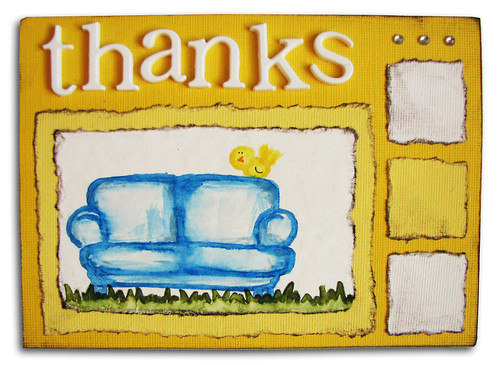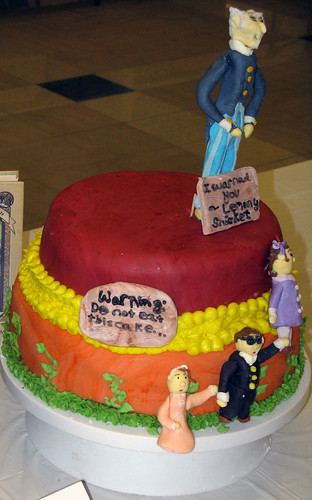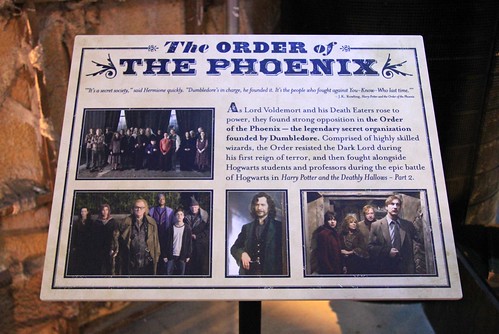Thanks to StoryDam for suggesting
this prompt. Ten minutes on the topic of gratitude, and what the idea means to
us.
I find the word
"gratitude" a pet peeve in real life, because parents have always
used it in a context to "be grateful" in a tone that immediately
makes one's hair prickle. "Gratitude" implies that we have to
appreciate what we have, not that we have a choice in the matter. Complaints
become the vermin of the household, the cockroaches that must be stamped out
during stressful times. If it were up to me, I'd rather count my blessings on
my own rather than have a parent remind me to count them. I have a planner for
a reason, so I can write down my reasons to be grateful in there.
Image source:
http://farm4.staticflickr.com/3138/2939241447_62d268f936.jpg
Fiction offers a different take on
the idea of being grateful. If not for luck, and perhaps a bit of help, most
protagonists would not survive past the first page. Some authors even have fun
playing with the idea, like Lemony Snicket in A Series of Unfortunate Events.
Although the Baudelaire orphans in the books have their fair share of bad
luck, from the fire that kills their parents to the different circumstances
that lead each of their guardians to die or abandon them, they also have enough
luck and time to foil Count Olaf's latest scheme to obtain them, or they'd have
disappeared in The Bad Beginning. The siblings also stay together, and
while their allies and enemies meet untimely, creative ends in each book, they
somehow manage to resolve their conflict with Olaf and grow up into normal
people.
Image source:
http://farm6.staticflickr.com/5209/5350696176_ca6de8a7c4.jpg
People also don't like complaining,
self-degrading heroes. One has to look at the frustration with Harry Potter in Order
of the Phoenix or the dislike for Bella Swan from Twilight to see
this self-degradation in action. Heroes suffer, and protagonists have issues,
but one peep of discontent and the readers pounce on it, even if the complaints
are legitimate. Harry spends most of the book suffering PTSD, for example, and
thus lashes out at the people around him for not understanding why fighting
Voldemort traumatized him. The next book featured him overcoming the trauma,
accepting his fate to take Voldemort and knowing that he will probably get
killed.
Image source:
http://farm6.staticflickr.com/5155/7190188251_ca6a9d788c.jpg
Heroes need to feel grateful in
fiction because they receive chances that they wouldn't receive in real life.
Had Harry not received his Hogwarts letter, for example, as well as the
dangerous adventures that Hogwarts provided, the Dursleys would have confined
to an abusive, dreary existence in the Muggle world as a neglected
orphan. Rowling cannot help but poke fun at this situation; when Harry's
Aunt Marge says she would have sent him to an orphanage if it were up to her,
Harry thinks that he would have preferred an orphanage. Even so, he manages a
polite goodbye in book seven, considering the circumstances, and stays in touch
with his cousin after the series concludes. Living with the Dursleys saved his
life, even if they didn't treat him like a surrogate son, and he lets go of his
animosity towards the wizards and Muggles who have made him suffer.
Image source:
http://farm6.staticflickr.com/5281/5203091533_8cd45563bd.jpg
So there are my ten minutes and more
on gratitude, on my preference for heroes who acknowledge that their lives suck
but deal with the villains and monsters, knowing no one else will. Now
I'm off to prepare for Thanksgiving, by getting my end of the semester work out
of the way.




2 comments:
Perhaps one reason we dislike ungrateful heroes is because we see it as like a fair trade:
"Sure, your life sucks because the villain has an evil army, but on the upside you've got magical powers, so what are you complaining about?"
or, alternatively
"Why are you complaining that you don't have any parents? Well, I don't have a time machine like yours, so I have more to complain about!"
I don't think it explains it entirely, but that's one of my theories . . .
That is one of the facets of Buffy, from what I remember; she complains about not having a normal high school life while beating up bad guys and staking them like nobody's business.
"Fair trade" would be an interesting concept to play with, if heroes had to willingly suffer for their abilities, and not just physical pain.
Post a Comment